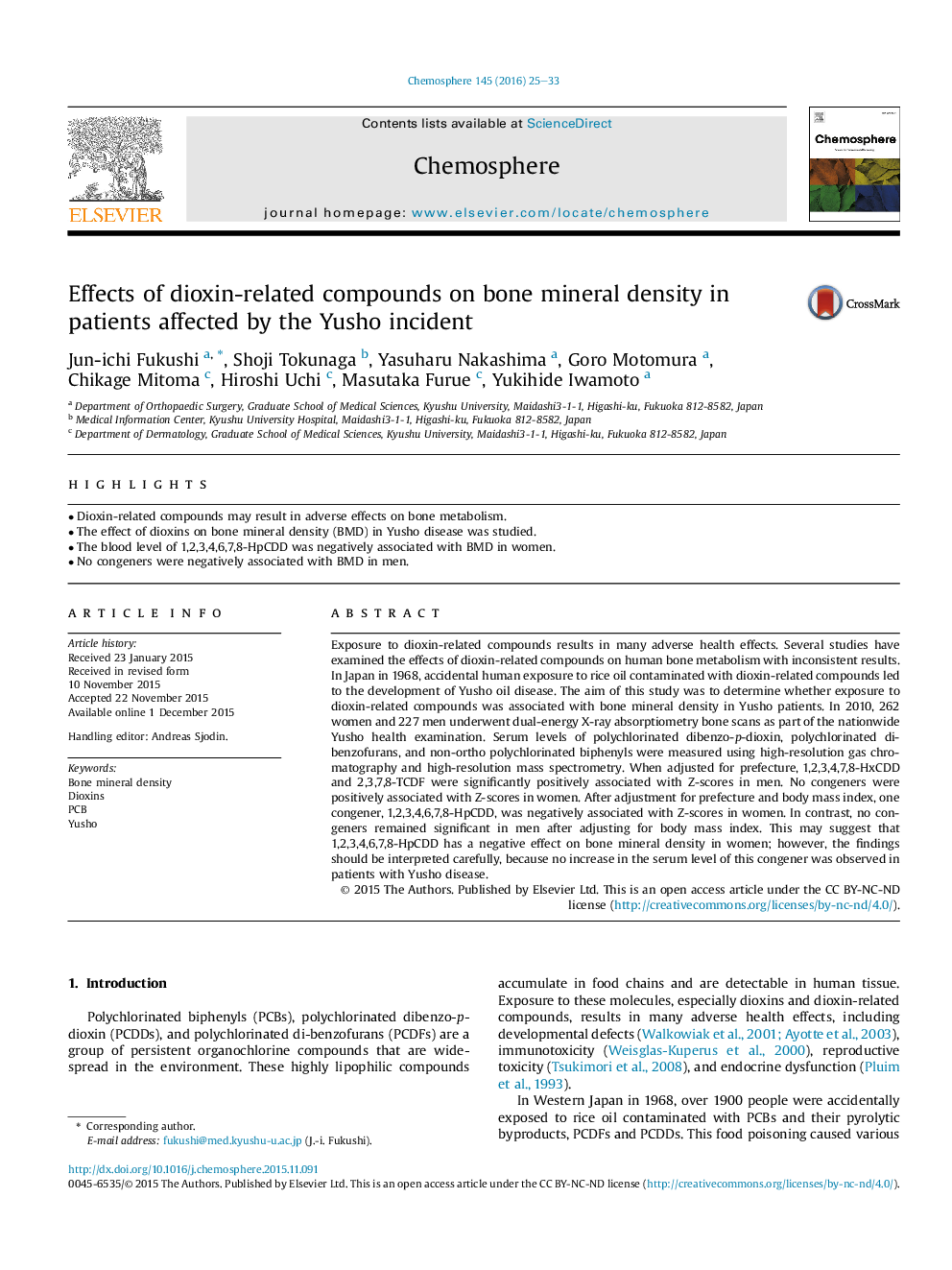| Article ID | Journal | Published Year | Pages | File Type |
|---|---|---|---|---|
| 6307007 | Chemosphere | 2016 | 9 Pages |
â¢Dioxin-related compounds may result in adverse effects on bone metabolism.â¢The effect of dioxins on bone mineral density (BMD) in Yusho disease was studied.â¢The blood level of 1,2,3,4,6,7,8-HpCDD was negatively associated with BMD in women.â¢No congeners were negatively associated with BMD in men.
Exposure to dioxin-related compounds results in many adverse health effects. Several studies have examined the effects of dioxin-related compounds on human bone metabolism with inconsistent results. In Japan in 1968, accidental human exposure to rice oil contaminated with dioxin-related compounds led to the development of Yusho oil disease. The aim of this study was to determine whether exposure to dioxin-related compounds was associated with bone mineral density in Yusho patients. In 2010, 262 women and 227 men underwent dual-energy X-ray absorptiometry bone scans as part of the nationwide Yusho health examination. Serum levels of polychlorinated dibenzo-p-dioxin, polychlorinated dibenzofurans, and non-ortho polychlorinated biphenyls were measured using high-resolution gas chromatography and high-resolution mass spectrometry. When adjusted for prefecture, 1,2,3,4,7,8-HxCDD and 2,3,7,8-TCDF were significantly positively associated with Z-scores in men. No congeners were positively associated with Z-scores in women. After adjustment for prefecture and body mass index, one congener, 1,2,3,4,6,7,8-HpCDD, was negatively associated with Z-scores in women. In contrast, no congeners remained significant in men after adjusting for body mass index. This may suggest that 1,2,3,4,6,7,8-HpCDD has a negative effect on bone mineral density in women; however, the findings should be interpreted carefully, because no increase in the serum level of this congener was observed in patients with Yusho disease.
